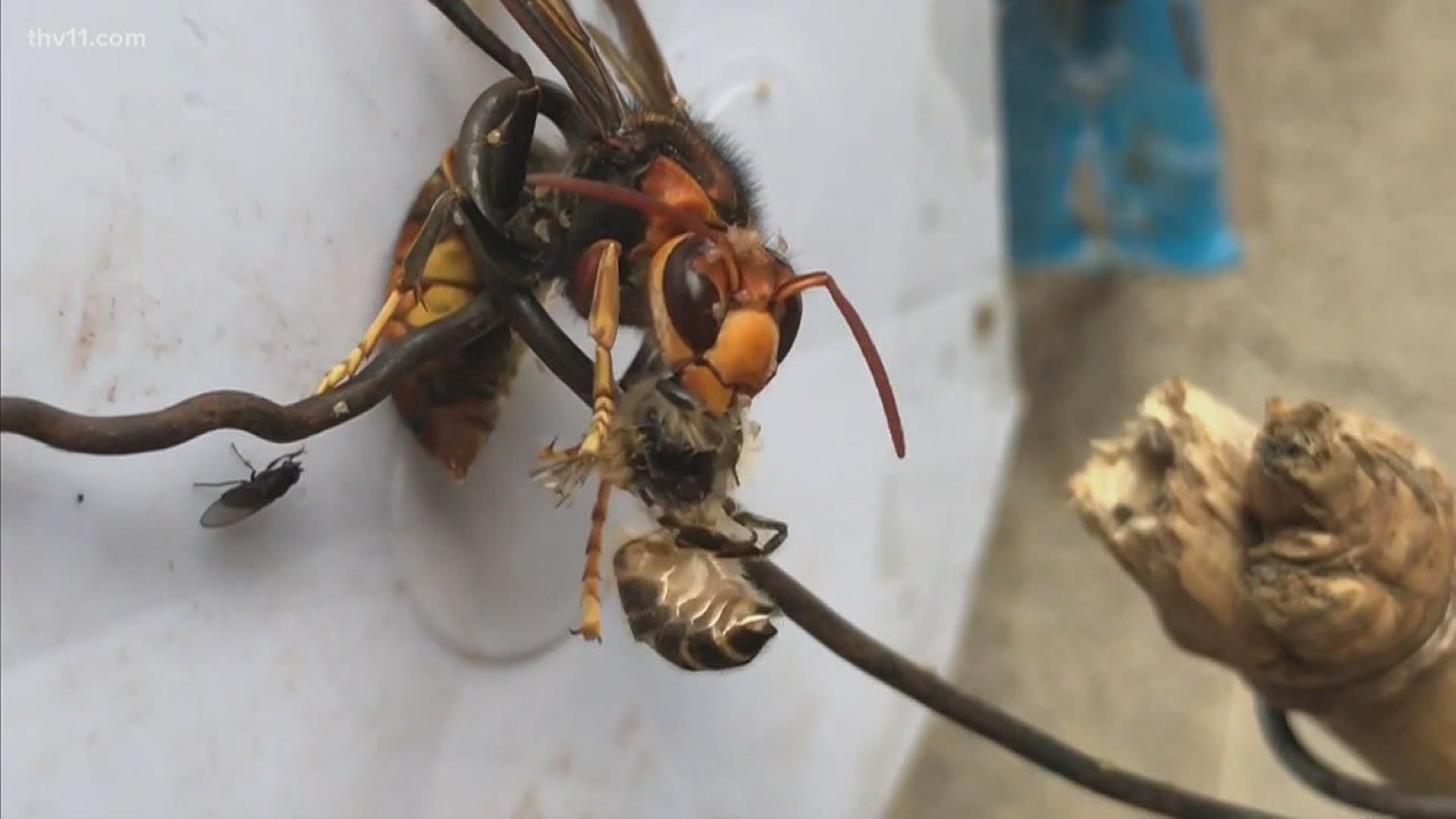LITTLE ROCK, Arkansas — It's like something out of a horror movie with a name to match.
The Murder Hornet has created a lot of buzz since it was first discovered on American soil late last year.
In December, the Murder Hornet, also known as the Asian Giant Hornet, landed in the state of Washington. This has been the only known sighting of the hornet in America.
"They're trying to get people in northwest Washington to try be on the lookout for more of these specimens," said Amy Michael with the Arkansas Department of Agriculture.
"They can get an idea of how large the population may be, if they are established, or hopefully, the population is still small enough that they have a chance to eradicate this insect," said Michael.
Their stings are said to deliver nearly seven times the amount of venom as a honey bee. That's strong enough to kill its victim.
However, there's something even more deadly about the insect.
"These hornets have the ability to kill large numbers of honey bees, and if allowed, they can take down a hive by themselves," said Michael.
THV11 has received several photos from Arkansans thinking they've found the hornet.
Brooke and Shane Bajorek of Cabot texted us photos. Two years ago, they caught what looked to be a Murder Hornet, but Michael says it's actually a native species called the Eastern Cicada Killer.
It looks similar to the hornet that's now spreading fear across the nation.
"Those [Eastern Cicada Killers] typically come out later in the summer and they will try to catch cicadas out of the air and feed them to their young," said Michael.
Another native species that can get confused with the Murder Hornet is the European Hornet. It's from the same species as the Asian Giant Hornet and can grow to the same size.
None of these hornets are likely to sting you, unless they feel threatened or provoked.
If you do see a hornet you are concerned about or you see it attacking a bee hive, it is recommended to stay 10 feet back and call the Arkansas Department of Agriculture.

